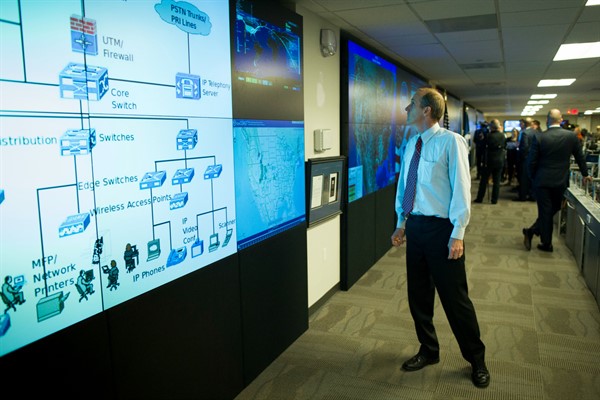Editor’s note: The following article is one of 30 that we’ve selected from our archives to celebrate World Politics Review’s 15th anniversary. You can find the full collection here.
Cyberspace has long been seen as shifting power toward the individual, with attacks over the past decade on corporations, governments and other weighty institutions largely corroborating this view. But while the structure of cyberspace itself will always lend significant and previously unavailable advantages to individuals, we are now entering a period where governments and institutions are beginning to regain the upper hand against asymmetric cyberwarfare.
In his 1996 "Declaration of the Independence of Cyberspace," John Perry Barlow declared a new world of the mind, where citizens would be free of government's sovereignty and coercive power. Likewise, the early cyberprophets (.pdf) promised universal prosperity and civility once each individual could access vast, freely shared stores of knowledge from around the world. Governments, unwilling to be left behind, made efforts to spread the Web across institutions, services, schools and homes, encouraging its usage through economically lucrative incentives. Neither the scale nor the complexity of the global substrate that would ultimately emerge was initially apparent. In particular, few suspected that there could be a dark side to empowering citizens to reach any place, gather any information and rationalize any action. No one contemplated the possibility that individuals would learn how to use cyberspace to attack as well as to productively innovate.

